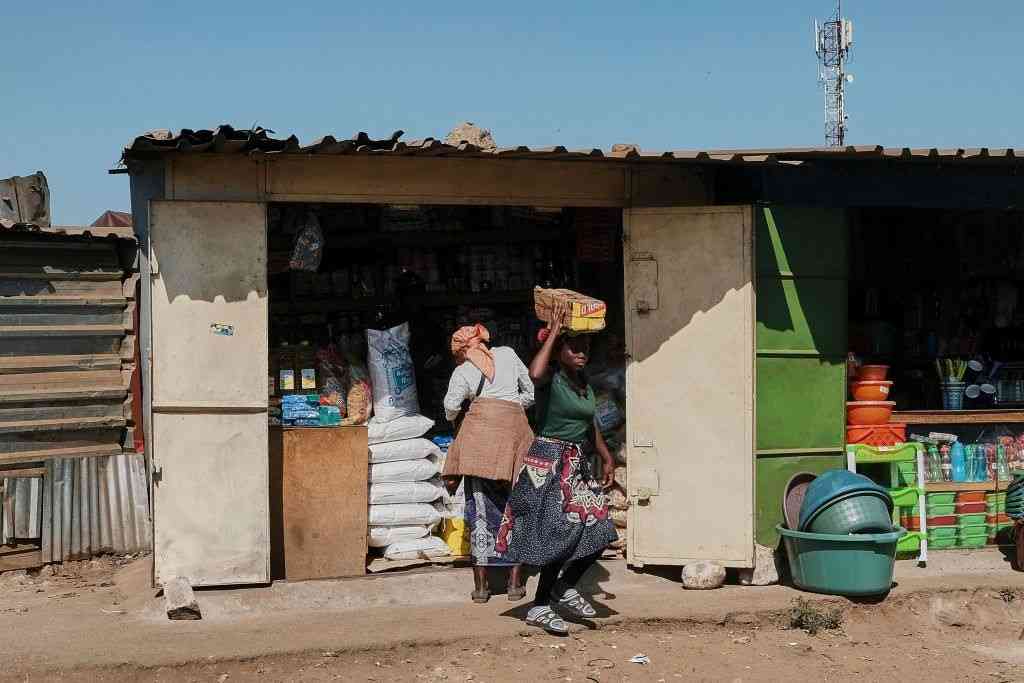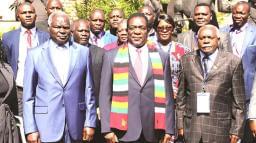The world has forgotten about Zimbabwe. Few outsiders know, or would care, that the country is due to hold elections this month. And that’s among those who could point to it on a map. For decades, Zimbabwe excited an interest that exceeded its geostrategic importance, but—in the West at least—that has faded as the country’s white population has dissolved and departed.
What former president Robert Mugabe derided as Britain’s ‘kith and kin’—whites who were born in or connected to Zimbabwe—have been scattered across the globe but haven’t taken influence with them.
They are old and politically irrelevant, or ‘late’, as Zimbabweans politely describe the dear departed. So, too, are most of the journalists and commentators who wrote about them. The remnant, the broken pieces of the white community, talk more about the past than the future. An air of loss, bitterness and fragmentation pervades. It is a thing that was, but is no more.
But it’s not the only one. In today’s Zimbabwe, hollow shells and broken fragments are everywhere. Mugabe’s ruling Zanu-PF party—now led by his former sidekick, Emmerson Mnangagwa—has been nothing if not thorough. In the long term, it is Zanu’s disintegrative force that will likely be its greatest legacy.
It has pulled down much and built little. It has killed. But more than anything else, it has fractured, corroded and atrophied communities, individuals and institutions—and even itself.
Zimbabwe’s economic degeneration has often been noted, but not so the shattering of Zimbabwean families it has wrought. Semi-permanent separation and disruption are an ever-present and devastating reality. Husbands and wives live and work in different countries to survive, and mothers and fathers go abroad, leaving children in the care of others or to fend for themselves.
The ‘small house’ phenomenon—impecunious women who offer themselves as secret partners and child-bearers to (what they hope will be) better-off men—has proliferated. The social dysfunction this will yield is a chapter of which only the opening paragraph has been scrawled.
Given the decay of these social building blocks, it’s unsurprising that larger structures are also falling apart. What was once opposition heartland—the southwestern provinces of Matabeleland and their Ndebele-speaking people—has changed.
Where once, in the 1980s, the people voted en bloc against the ruling party—an extraordinary act of defiance in the face of mass killings and relentless intimidation—and then in the 2000s provided solid support to Morgan Tsvangirai’s Movement for Democratic Change, there is now political and social incoherence.
The Ndebele pull in myriad directions these days. No party or group can credibly claim to represent them. Many won’t vote; some will opt for ephemeral, two-bit parties; and still others, in an act as extraordinary as their past resistance, are already conjoined with their former persecutors. Usually, it’s not for love, but because the withered teat of the ruling party is one of the few available in an emaciated economy.
Meanwhile, many among the elderly question whether the Ndebele ‘nation’, such as it was, continues to exist at all given the breakdown of enduring traditions and the disappearance of unifying factors. They lament the drift of Ndebele youth from their roots and the influx of Shona speakers into what used to be Ndebele-dominated areas.
The shifts in Matabeleland are emblematic of those that have occurred across Zimbabwe. The opposition is a different creature to the one Tsvangirai formed 25 years ago. The Movement for Democratic Change was always more a set of ideas and aspirations than a functional reality, but much of the vision behind it has died.
Many of the leaders of the successor party, the Citizens Coalition for Change, are the same, but its constituency has morphed from a people who dreamt of a better Zimbabwe, because they could remember and idealise its past, to a new generation—one that has grown up in an economic melee where survival instincts and opportunism rule the roost. A dog-eat-dog world of graft and grifters and the dictates of the hand-to-mouth are all they have known.
They are what Kenyan politician William Ruto called a ‘hustler nation’. It’s a place where needs are as immediate as horizons are narrow. Significantly, Ruto’s subliminal message is the story of his own life: not of a simple, hardworking, self-made man, but a Darwinian journey from rags to gangster riches, using every trick in the book. The children of a hustler nation fantasise less about the soaring moralities of a better country than about making their escape from the ghetto, by whatever means.
And what of the ancien régime at whose feet much of this is to be laid? Zanu-PF speaks loudly and carries a big stick—but has hollowed itself out, just as it has the rest of society. A series of purges have eviscerated much of its original membership over the past decade. And it is, indeed, visibly ancient. Meetings of the party leadership are nowadays a conspicuous display of gerontocratic rule—tired, joyless occasions for the mouthing of worn-out slogans and conspiracy theories.
It is not so much what the regime will do over the next few years that should exercise the minds of those who do care. It is what will come after. True, the capacity for yet further destruction and violence remains for as long as gnarled fingers grasp the wheel. Zanu-PF will stick to what it does best.
But Zimbabwe itself is not old and dying. Far from it. The median age is a touch over 18, less than half that of Australia and New Zealand. The shape of its population pyramid is a sight to behold. The question, then, is what will emerge from the burgeoning population, the hustler nation that lives among the dilapidation. Their number includes the security services that underwrite the regime, whose senior echelons are almost as antiquated as those of their political partners. But the rank and file are young and poor, their direction uncertain.
It’s the story of Africa, as much as it is Zimbabwe’s. The liberation generation is passing away, despite its claims to immortality. What will arise from those whose opportunities and aspirations have been impoverished and miniaturised? Without new leadership and fresh, unifying ideas, the vision and future are likely to be meagre.
Source Newsday








